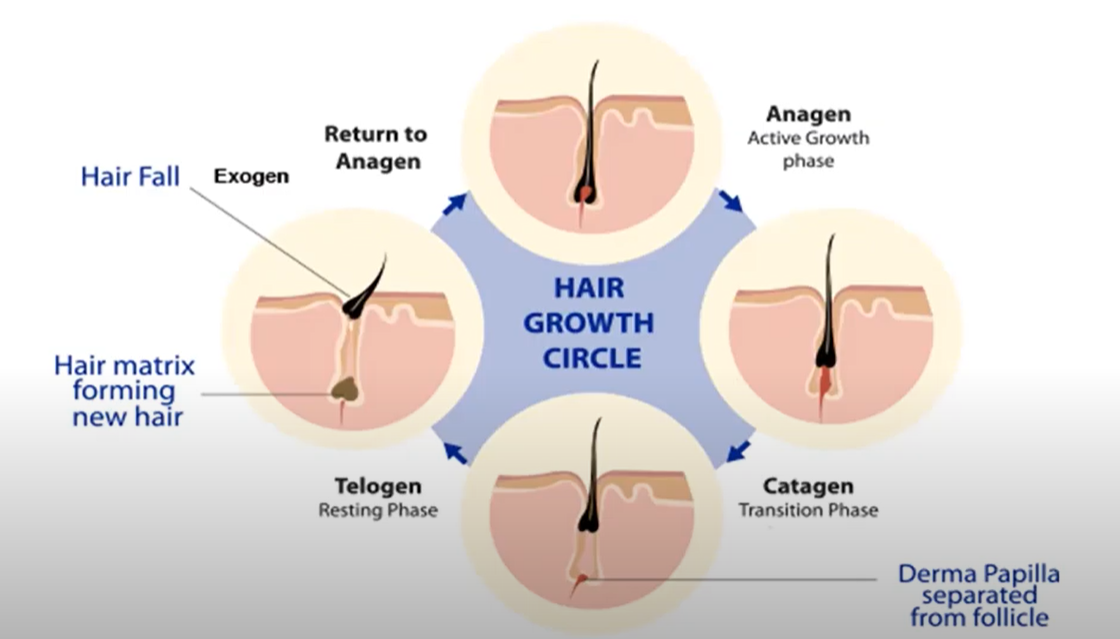Hair Today, Gone Tomorrow – Hair Loss & Growth Cycle
Article by Dr Aparna Hegde
It is reported that over 50% of men over 50 have some degree of hair loss. It is a common problem that we see at Cellf GP and Wellness Clinic affecting both men and women. It tends to be more distressing in women as it is more socially acceptable in men.
Hair Loss Process
We are born with 100 to 150,000 hair follicles and hair grows in a cycle that is in constant transformation as per the diagram below:

At any one time, 80-90% of hair is in the Anagen or growing phase which lasts for about 3-6years and determines the length of the longest hair a person can grow. 5-10% of hair is in the Telogen or resting phase and 5% is in the Catagen or transition phase where it is preparing to shed taking approximately 2-3 weeks. In the Exogen or hair fall stage hair is shedding. The average hair fall is 50 to 100 hairs a day.
Hair Restoration Treatments
There are many treatments that we provide at Cellf that can help with hair restoration and minimising ongoing hair loss that are individualised to the patient. I find a holistic approach works best for hair loss as with all medical issues. It is a myth that treatments are not effective in older patients although it is best to intervene before there is permanent hair loss. Some effective treatments that we can offer you at Cellf with good evidence are listed as below:
- Optimisation of nutrients
- Hormonal interventions
- Low level laser light treatment
- Dermal needling with or without mesotherapy
- Compounded topical treatments
- Platelet Rich Plasma (PRP) using the third generation Emcyte system
- Stromal Vascular Fraction treatment – The TGA approved systems:
- Regenera uses full thickness skin biopsies
- Cellutions system uses fat
Discover Advanced Therapeutic Solutions in Complementary Medicine with Cellf GP and Wellness Clinic.
If you are concerned about hair loss, don’t delay and book in to discuss it with the doctor at Cellf today. The sooner we address it, the better the results.


